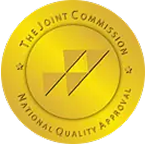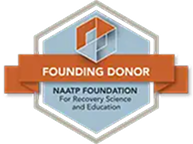The Power of Pause During Addiction Recovery

When someone says, “Hey, how’s it going?” in passing, do you take a moment to think about your response? Or by way of verbal muscle memory, do you reply, “Good — and you?” Often, you probably respond and keep walking, not even stopping to hear what the person has to say. What if today you took a quick moment to pause your life, and to genuinely respond and actively listen?
In this new age of fast food, fast cash, social media, and constantly connection, humans have certainly become accustomed to instant gratification, and rapid reaction. When something in your life happens that is beyond your control, it can be tempting to react immediately because that’s what you’ve become used to. It can become a habit or a pattern to say “yes” to an email quickly to get it out of your inbox, to be snappy with a loved one when they say something you don’t agree with, or even to get angry at yourself quickly when you do something wrong. These immediate reactions separate you from your ability to think ahead, to “play the full tape through,” and they don’t account for what may happen as a result of your response.
Your immediate emotions are almost always rooted in frustration, anger, anxiety, sadness, and fear—because these are the emotions that are familiar to those who have suffered from substance use disorder, the ones that the disease feeds on. These are emotions that don’t require much thought or patience, they’re instant, and they’re what you might know best.
In all the moments of your daily life that you spend rushing through, reacting quickly, what if you took just a few of them to pause? What if you recognized a situation, and took a few seconds to breathe before responding?
Step three offers some of this wisdom
…Made a decision to turn our will and our lives over to the care of our higher power as we understood it.
As you turn your life over to something bigger than yourself, your higher power as you understand it, you can accept your inability to control your problems or situations in your life. The only thing you can control in your life is how you react to things. Step three says:
In all times of emotional disturbance or indecision, we can pause, ask for quiet, and in the stillness simply say: “Grant me the serenity to accept the things I cannot change, the courage the change the things I can, and the wisdom to know the difference.”
Infinite power and spiritual energy lies within the moment between something happening in your life and your active response to it. This includes how you treat others, and how you treat yourself. There are very few things in your life that require an immediate action, and it is healthy, and productive to take some time to think about what you might say or do before pressing “play” again.
In recovery, this is how you can work to prevent a return to use. When a problem arises in your life, take your moment of pause and ask your higher power for quiet and understanding, or seek counsel from a sponsor or the collective wisdom of a home group. In your life, the power of your pauses protects you from hurting others and yourself.
As you pause, you are able to step aside and react to things from a place of empowerment, of steadiness, and of serenity. You’re able to provide thoughtful responses, exercise your personal boundaries, and meet others with understanding and love.
***
For more information, resources, and encouragement, “like” the Fellowship Hall Facebook page and follow us on Instagram at @FellowshipHallNC.
About Fellowship Hall
For 50 years, Fellowship Hall has been saving lives. We are a 99-bed, private, not-for-profit alcohol and drug treatment center located on 120 tranquil acres in Greensboro, N.C. We provide treatment and evidence-based programs built upon the Twelve-Step model of recovery. We have been accredited by The Joint Commission since 1974 as a specialty hospital and are a member of the National Association of Addiction Treatment Providers. We are committed to providing exceptional, compassionate care to every individual we serve.






